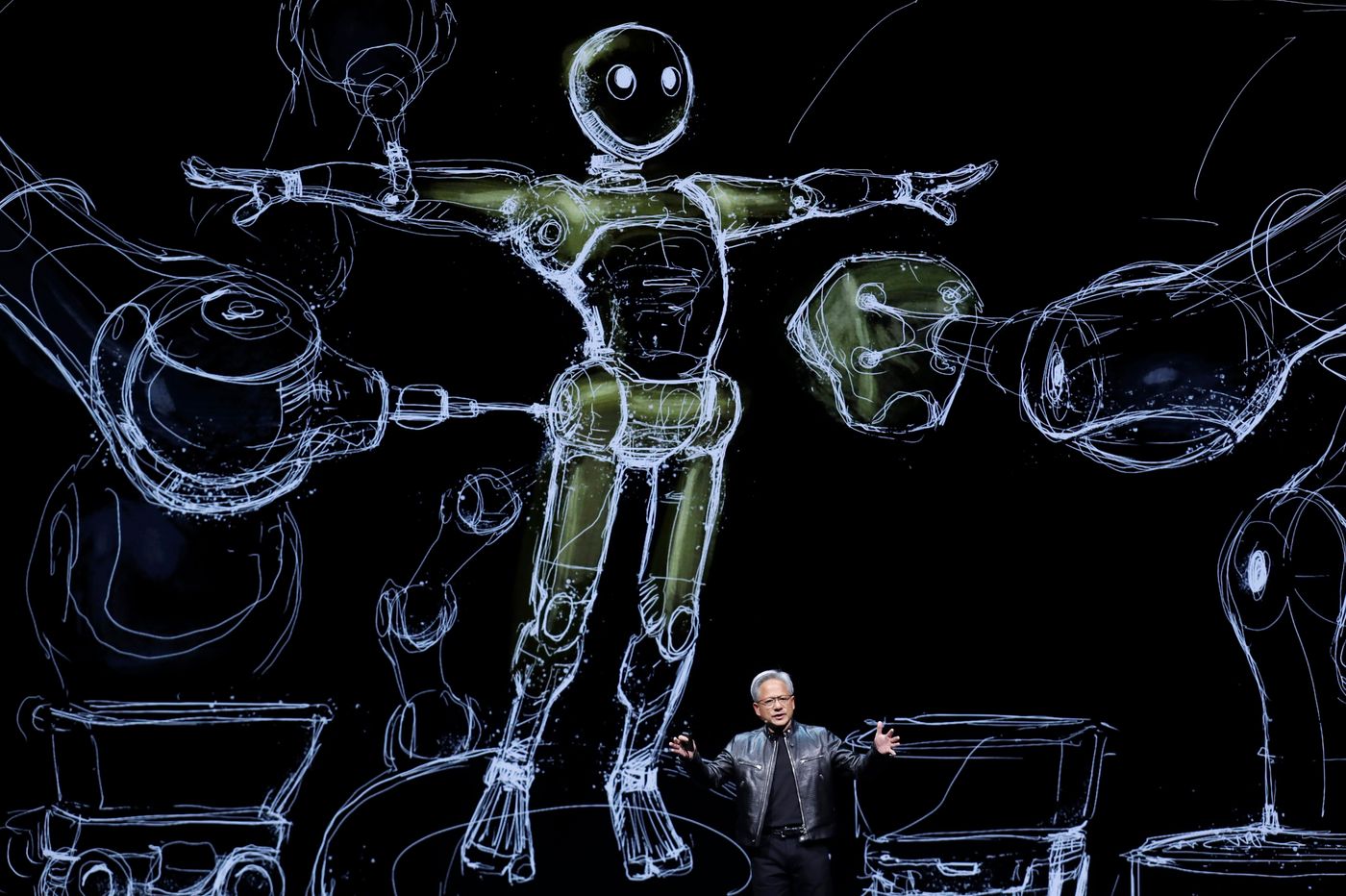The Benefits of Eavesdropping on Office Conversations
Employees—and bosses—can learn a lot of useful information by listening in on the chatter around them
It is one of the hardest things about working in an office: You are constantly overhearing other people. Sometimes it is just distracting chatter. Sometimes it is the proverbial “too much information” about people’s lives or projects. And, of course, sometimes other people are listening in on you.
But what if the ability to eavesdrop is a benefit for your work life, not a negative?
Workers can gain a host of insights from the buzz of conversations around them, some executives and researchers say. Eavesdropping not only can deliver information about what is happening at the company, it can help people understand their colleagues’ mind-sets, workloads and moods. It can help people learn who’s who in the organisational structure and pick up tips on how to have certain kinds of conversations. Some workplaces are even trying to create opportunities for this kind of informational osmosis to occur.
This new respect for eavesdropping is driven in part by the return to work after the pandemic. Employees are starting to realise how much they benefited from the information they absorb by seeing co-workers in person—anything from weekend plans to forthcoming work projects.
“They have more opportunities to listen in on the water-cooler conversations,” says Johnny Taylor, chief executive of SHRM, the Society for Human Resource Management.
Chattering classes
Robert Burns, a marketing director at Sunnking, an electronics recycler in Brockport, N.Y., says that he often eavesdrops on co-workers as they make their business calls. It helps him better understand how they speak about the company to clients or vendors, which, in turn, helps him pick up tips on what does and doesn’t work, he says.
After overhearing them, he also has given co-workers “talking points” to help them use less industry jargon when discussing the recycling business. The object, he says, is to make it easier for them to relate to clients. “It benefits me in this role and my team to hear what everyone is doing—whether they like it or not,” he says.
Burns is careful of what is said in more hushed tones around the office. When he overhears information being said in a whisper, he is more hesitant about bringing it up later or in meetings. “I can probably hear it, but I don’t need to acknowledge it,” he says. “It’s kind of an unwritten understanding.”
The biggest benefits to eavesdropping go beyond hearing what is said, according to researchers. Seeing who is talking to whom can make it easier to accurately map out other people’s networks, says Hillary Anger Elfenbein, professor of organisational behaviour at Washington University in St. Louis who studies the topic. With that knowledge, employees can better understand how to influence company decision makers based on whom they know or where to turn to find information.
In her research, she found that most employees find it difficult to accurately define these networks without in-person opportunities. Even if the chat is muffled, “you hear about the relationship between them,” she says, through cues like body language.
In recent years, when fewer people are in the office, being in a situation to overhear conversations is also “more valuable for the eavesdropper,” says Elfenbein. With fewer chances for in-person conversations taking place, every chance to listen in is all the more important.
Deploying design
Many companies are starting to see the benefits of promoting awareness of workplace behaviours, including overheard conversations, and are exploring office layouts that encourage the practice, says Brian Stromquist, who leads the technology workplace practice at design and architecture firm Gensler. Specifically, he is seeing more interest from companies that want eavesdropping to serve as an informal way of mentorship between junior and senior employees. A newer employee can benefit simply from overhearing a more senior person participating in a meeting, solving a problem or leading a project.
“Eavesdropping is seen as a subset of observation where junior employees can observe leadership qualities,” he says.
From a design perspective, that means Gensler is now creating more spaces where there are different areas that are explicitly designed to encourage and discourage listening, “allowing for a spectrum of acoustic privacy,” says Stromquist, who is based in San Francisco. For instance, an area of open desks may make it purposely simple to overhear conversations, while another part of the floor may use music or white noise to create an atmosphere more conducive to privacy, he says. Deep-focus spaces or quiet libraries are explicitly places where employees should not be listened to, he adds.
“As people are re acclimating to the office, they’ve kind of established this new set of protocols that really recommend how you might use new spaces within the office,” he says.
Mind your manners
Of course, no one recommends purposely seeking out private or personal conversations to listen in on. And you should only act on information that you overheard without violating somebody else’s privacy.
“You don’t want to create a culture where people feel like you’re big-brothering them and hearing everything they say,” says Adam Struck, founder of Struck Capital, a venture-capital firm based in Los Angeles.
It is possible that employees in certain roles are more likely to be in need of eavesdropping for success, says Leila Bighash, assistant professor of communication at the University of Arizona, who studies social eavesdropping. Previous research showed that nurses, physicians and hospital staff were more likely to consider eavesdropping at work as integral to their job because they could overhear information at a cardiac intensive-care unit that was critical to a patient’s health.
People in a cutthroat work environment may also benefit more from eavesdropping, Bighash says. In those workplaces, people may be more reluctant to share information in direct conversation with certain people. So employees who listen to others can learn about projects outside of their department, or potential conflicts or challenges.
Digital eavesdropping
Eavesdropping doesn’t have to be confined to in-person conversations. With so many people keeping in touch with far-flung co-workers digitally, there are now more companies replicating the office environment by offering more opportunities for digital eavesdropping, says Paul Leonardi, professor of Technology Management at UC Santa Barbara.
One opportunity to digitally eavesdrop is through Slack channels or other messaging apps that allow for many participants, he says. Another is for people to access company materials and presentations online or by listening to recorded Zoom calls that aren’t directly related to their work, says Leonardi.
Leonardi suggests using messaging apps, including Slack, to get a sense of other employees’ lives, especially outside of work. In his research, he finds that information from this kind of digital eavesdropping—such as details about a vacation—makes a good ice breaker when approaching these same workers offline.
“People’s comfort at reaching out to other people on whose information they have eavesdropped increases if they know stuff about them,” he says.
But be cautious when using overheard information, says Deborah Grayson Riegel, an executive coach in Chapel Hill, N.C., who works with large companies on communication. Much of the time, employees need to be aware that some of the information may be confidential, jeopardise company initiatives or simply be interpreted incorrectly.
“You need to understand that you are hearing it out of context, and it’s not the full story,” she says.
 Copyright 2020, Dow Jones & Company, Inc. All Rights Reserved Worldwide. LEARN MORE
Copyright 2020, Dow Jones & Company, Inc. All Rights Reserved Worldwide. LEARN MORE
This stylish family home combines a classic palette and finishes with a flexible floorplan
Just 55 minutes from Sydney, make this your creative getaway located in the majestic Hawkesbury region.
As Paris makes its final preparations for the Olympic games, its residents are busy with their own—packing their suitcases, confirming their reservations, and getting out of town.
Worried about the hordes of crowds and overall chaos the Olympics could bring, Parisians are fleeing the city in droves and inundating resort cities around the country. Hotels and holiday rentals in some of France’s most popular vacation destinations—from the French Riviera in the south to the beaches of Normandy in the north—say they are expecting massive crowds this year in advance of the Olympics. The games will run from July 26-Aug. 1.
“It’s already a major holiday season for us, and beyond that, we have the Olympics,” says Stéphane Personeni, general manager of the Lily of the Valley hotel in Saint Tropez. “People began booking early this year.”
Personeni’s hotel typically has no issues filling its rooms each summer—by May of each year, the luxury hotel typically finds itself completely booked out for the months of July and August. But this year, the 53-room hotel began filling up for summer reservations in February.
“We told our regular guests that everything—hotels, apartments, villas—are going to be hard to find this summer,” Personeni says. His neighbours around Saint Tropez say they’re similarly booked up.
As of March, the online marketplace Gens de Confiance (“Trusted People”), saw a 50% increase in reservations from Parisians seeking vacation rentals outside the capital during the Olympics.
Already, August is a popular vacation time for the French. With a minimum of five weeks of vacation mandated by law, many decide to take the entire month off, renting out villas in beachside destinations for longer periods.
But beyond the typical August travel, the Olympics are having a real impact, says Bertille Marchal, a spokesperson for Gens de Confiance.
“We’ve seen nearly three times more reservations for the dates of the Olympics than the following two weeks,” Marchal says. “The increase is definitely linked to the Olympic Games.”

Getty Images
According to the site, the most sought-out vacation destinations are Morbihan and Loire-Atlantique, a seaside region in the northwest; le Var, a coastal area within the southeast of France along the Côte d’Azur; and the island of Corsica in the Mediterranean.
Meanwhile, the Olympics haven’t necessarily been a boon to foreign tourism in the country. Many tourists who might have otherwise come to France are avoiding it this year in favour of other European capitals. In Paris, demand for stays at high-end hotels has collapsed, with bookings down 50% in July compared to last year, according to UMIH Prestige, which represents hotels charging at least €800 ($865) a night for rooms.
Earlier this year, high-end restaurants and concierges said the Olympics might even be an opportunity to score a hard-get-seat at the city’s fine dining.
In the Occitanie region in southwest France, the overall number of reservations this summer hasn’t changed much from last year, says Vincent Gare, president of the regional tourism committee there.
“But looking further at the numbers, we do see an increase in the clientele coming from the Paris region,” Gare told Le Figaro, noting that the increase in reservations has fallen directly on the dates of the Olympic games.
Michel Barré, a retiree living in Paris’s Le Marais neighbourhood, is one of those opting for the beach rather than the opening ceremony. In January, he booked a stay in Normandy for two weeks.
“Even though it’s a major European capital, Paris is still a small city—it’s a massive effort to host all of these events,” Barré says. “The Olympics are going to be a mess.”
More than anything, he just wants some calm after an event-filled summer in Paris, which just before the Olympics experienced the drama of a snap election called by Macron.
“It’s been a hectic summer here,” he says.

AFP via Getty Images
Parisians—Barré included—feel that the city, by over-catering to its tourists, is driving out many residents.
Parts of the Seine—usually one of the most popular summertime hangout spots —have been closed off for weeks as the city installs bleachers and Olympics signage. In certain neighbourhoods, residents will need to scan a QR code with police to access their own apartments. And from the Olympics to Sept. 8, Paris is nearly doubling the price of transit tickets from €2.15 to €4 per ride.
The city’s clear willingness to capitalise on its tourists has motivated some residents to do the same. In March, the number of active Airbnb listings in Paris reached an all-time high as hosts rushed to list their apartments. Listings grew 40% from the same time last year, according to the company.
With their regular clients taking off, Parisian restaurants and merchants are complaining that business is down.
“Are there any Parisians left in Paris?” Alaine Fontaine, president of the restaurant industry association, told the radio station Franceinfo on Sunday. “For the last three weeks, there haven’t been any here.”
Still, for all the talk of those leaving, there are plenty who have decided to stick around.
Jay Swanson, an American expat and YouTuber, can’t imagine leaving during the Olympics—he secured his tickets to see ping pong and volleyball last year. He’s also less concerned about the crowds and road closures than others, having just put together a series of videos explaining how to navigate Paris during the games.
“It’s been 100 years since the Games came to Paris; when else will we get a chance to host the world like this?” Swanson says. “So many Parisians are leaving and tourism is down, so not only will it be quiet but the only people left will be here for a party.”
This stylish family home combines a classic palette and finishes with a flexible floorplan
Just 55 minutes from Sydney, make this your creative getaway located in the majestic Hawkesbury region.






















